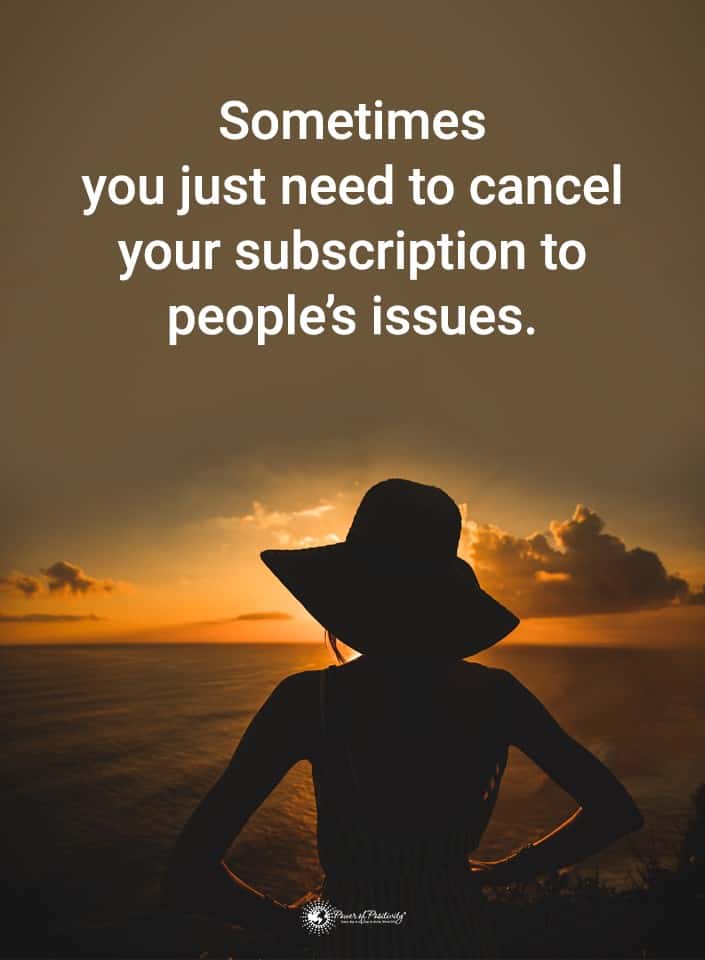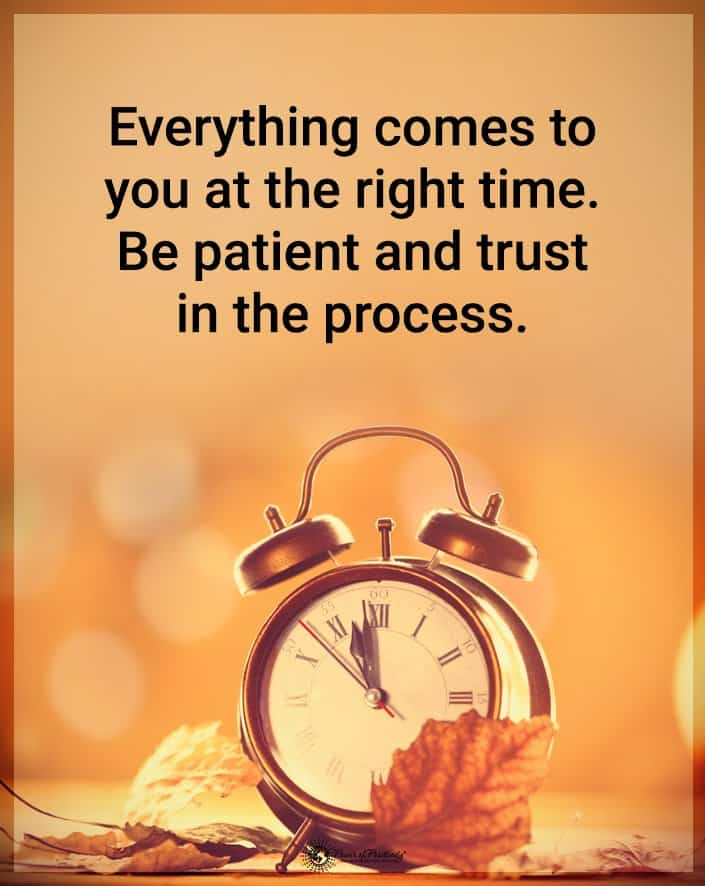Are you a people-pleaser? Do you have trouble finding motivation for your actions intrinsically? Do you tend to cave in whenever people try to persuade you to do something for or with them? If you’ve answered yes to any of those questions, then you may be trapped in a toxic cycle of pleasing others.
Your life belongs to you, and it shouldn’t wind up only being lived for the sake of others. How can you break this spiral? Here are six ways to reclaim your life and stop pleasing others.
1. Let Go of Negative Emotions
Negative emotions can cloud your judgment. They do the opposite of guiding you. Instead they whisk you away to a world that will only get darker and harm you more and more every day. It would help if you learned to let go of that negativity and focus on positive thinking.
This doesn’t mean repressing your bad feelings, though. You need to know how you feel if you want to fight the negativity. Here are some tips for letting go of negative emotions so you can reclaim your life:
· Don’t Let Fear Control You
If you’re a people-pleaser, there’s a good chance that you worry about what will happen when you stop going out of your way to please others. You may fear that everyone will turn against you, that no one will want to be your friend, or that people will hate you for putting yourself first. The truth is that the fallout from deciding to please others less isn’t nearly as significant as you think. Sure, some people will be annoyed, but most people don’t think about you almost as much as you worry they may.
· Don’t Be Guided By Guilt
A strong sense of guilt can turn you into a people-pleaser. You feel bad about the idea of not helping others, so you try your best to do more. It’s a very unhealthy mentality and will lead to problems like resentment and exhaustion. If your prime motivator in doing things for others is guilt, it’s time to take a step back.
· Don’t Hold Yourself To Ridiculous Standards
No matter what you do in life, you cannot please everyone, and people who you do please aren’t going to remember your actions forever. You can’t make others happy, and the only person you can control is yourself. So focus on your emotions and thoughts instead of worrying obsessively about the views of others.
· Learn To Self-Soothe
Self-soothing in a positive way is a fantastic method for reducing the severity of negative emotions. Find things to do that help relax you whenever you feel negative emotions cropping up. This will allow you to handle your negative feelings productively and effectively.
2. Consider Reality
People-pleasers often lose a sense of what is real, what is too much, and what is unreasonable of others to expect. If you want to make everyone happy, chances are your grip on what is truly important has been somewhat lost. Here are some things to consider before going forward with more people-pleasing behaviors:
· Consider What’s Worth Your Time
Think about the things you do to please others. Is it worth your time? In what ways are you fairly repaid for it? Is this how you want to spend your days? What else would you be happier doing? Does the person you’re pleasing value your time? Think about all these things. You may realize that the amount of effort you put into others isn’t worth spending that way.
· Consider Who You Want To Give Time To
You can’t fill your plate with too many obligations. If you do, you’ll inevitably burn out. As such, you need to think about who you want your time to go to. Would you instead do a favor for someone who you know cares about you then do something for the same colleague who’s been demanding your time for weeks?
· Consider How Others Convince You
Some people are very good at spotting people-pleasers, and they’ll get ready to manipulate you right off the bat. They’ll use flattery, invoke guilt or shame, or make you feel obligated to do something for them. This tactic is manipulation, plain and simple, but it can be tough to notice when you’re being manipulated, so be aware.
3. Pause When You Feel the Inclination to Pleasing Others Starting
Feel yourself about to give something up to please other people? Stop right there! Just pause for literally a fraction of a second! According to research, that may be all you need to aid in your decision-making process!
The brain only requires between 50 and 100 milliseconds to shift its focus from initial reactivity to important information. Pausing and focusing for a moment will reduce external distraction input and allow you to put aside others’ words when you make decisions.
So the next time you need to make a choice that could give you a new obligation, pause. The brief silence is all you need to focus on what matters most.
4. Find Power In Saying “No.”
For people-pleasers, saying “no” can seem terrifying. But being a yes-man all the time is a surefire way to lose control of your life. When other people get to take up all your space, you should take that as a red flag. Reclaim your life by saying “no” more often, with the following tips:
· Start Small
You don’t need to say “no” to people you have to see every day right off the bat. Instead, begin by practicing. Take baby steps. Learn to say “no” more regularly to the people you usually say “yes” to automatically. Hype yourself up before you have big talks with people about your boundaries. Start with people you trust and work your way towards people who may be resistant to your enforcement of limitations. Little steps bring you to your destination in time!
· Be Assertive
When you refuse someone, you have to sound like you mean it. Don’t leave room for your tone to be interpreted as “convince me.” Speak with conviction, even when you feel afraid. The first few times will be challenging, but your assertiveness will come more naturally as you get more used to it.
· Stop Apologizing
Apologizing for having to say “no” doesn’t make sense. You haven’t done anything wrong. Your apology will tell the other person that you have to make it up to them. Only apologize when you are actually at fault, and not to avoid someone’s annoyance.
· Don’t Overdo The Excuses
Using excuses to explain yourself gives others more opportunities to wiggle you out of your insistence. You may feel like you have to justify your decisions, but just one honest and truthful explanation is sufficient.
· Be Empathic
Saying “no” doesn’t mean being a jerk. It means being able to assert your boundaries while still understanding and appreciating others. You can know where someone’s coming from and speak to them with compassion while still upholding your limits.
· Remember The Good Sides Of Saying “No.”
There are positive things that come from being able to say “no” at the right times. Putting yourself first is inherently good for you, so remember all its benefits when you’re having some trouble fighting the inclination towards pleasing others.
5. Change “I Can’t” To “I Don’t.”
The way you say “no” can change whether or not someone succeeds in persuading you to agree to them. If you want to stop trying to please others so much, then you shouldn’t be saying “I can’t” when you try to decline. If you want a more positive result, say “I don’t.”
Why does this happen? Well, statements like “I can’t” allow people to push you. Your boundaries are tested quickly, and anyone can ask why you can’t do something. Then, whatever your excuse is, they’re likely to have a coaxing response. For example, people may say:
- It’ll only take a little while.
- It’s not a big deal.
- It’ll be fine!
- Not even for me?
- Oh, don’t be silly!
- Ugh, hurry up!
When you use “I don’t,” you’re making it clear that your boundaries are because of your preferences. It can sound harsh when you first start using the phrase, and of course, not everyone needs to hear something so direct, but it’s good to put it into practice. “I don’t” leaves no room for wiggling or loopholes: you don’t want to do this, so you won’t.
6. Find Validation Intrinsically
A lot of the root of people-pleasing lies in the desire for validation. You want others to like you, so you please them as best as you can, often at the expense of your own life. This indicates low self-esteem – you need appreciation, attention, and validation for others to feel worthy and “good enough.”
There is a study that illustrates very well how reliance on external validation can affect everything you do and even how valuable things are. It’s called “How the Opinion of Others Affects Our Valuation of Objects.” During this research:
- Participants were asked to list down 20 songs they enjoyed but didn’t own any personal copies of
- Participants would then have to rate each song on a ranking scale of 1 to 10; this rank would indicate their desire to own the music.
- Two “experts” in the musical field were introduced to the participants, and they provided their own opinion on each song.
- Brain scans revealed that, in individual participants, the brain’s reward centers lit up and became full with activity when the “experts matched their opinion.”
- Validation-seeking individuals have this positive activity in the brain whenever they receive the validation they desire, making it quite addictive.
Unfortunately, external validation isn’t a long-term solution to low self-esteem. Internal validation from yourself is the kind that allows your sense of self to grow. When you begin only to care what you think, your life has been reclaimed, and you will no longer feel the urgent need to please others.
Final Thoughts On Some Ways To Reclaim Your Life And Stop Pleasing Others
Your life belongs to you. By repeatedly attempting to please everyone, though, you give away parts of your life. The good news is that it is still yours, and you can reclaim it by striking a balance between prioritizing yourself and pleasing others around you. If all else fails, surround yourself with your loved ones. You got this!

















 Community
Community

